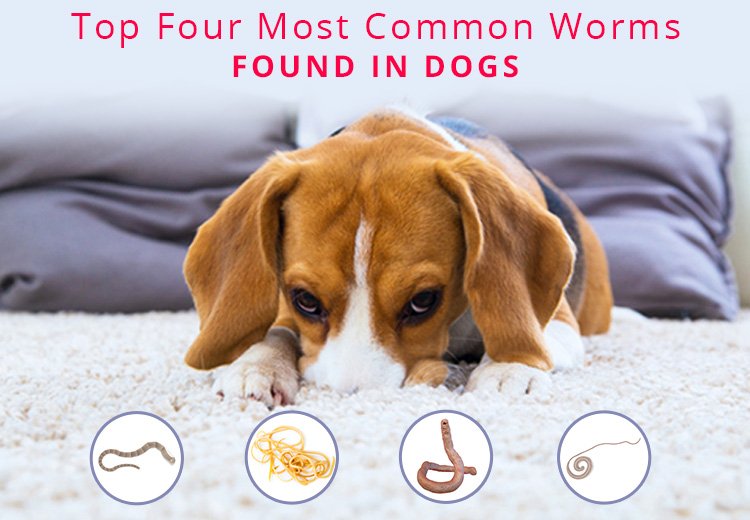 Apr 04, 2018
Apr 04, 2018

You might’ve seen your veterinarian examine your dog’s stool sample. Why does he do that? It’s because dogs are victims of several parasites referred to as worms. The most common are roundworms, hookworms, tapeworms and whipworms. So a stool sample is precisely required to discover which parasite is present. Let’s have a closer look at how these worms affect your pet’s lifestyle.
A large percentage of dogs are born with microscopically small roundworms in their tissues. These larvae are transferred to a developing pup in their mother’s uterus through their mother’s tissues. Larvae can also be transferred to a pup through their mother’s milk. They make their way to intestinal tract where they can grow up to 5 inches in length. They start shedding eggs in pup’s intestine. When these eggs hatch, larvae are released internally to migrate to the animal’s lungs where they are finally coughed up. Female roundworms can produce 200,000 eggs in just one day. They remain dormant for long periods of time and can get activated during last stages of pregnancy to infest the puppies.
Dogs get tapeworms from ingesting fleas. When the flea eggs hatch, they may also consume tapeworm eggs. The larval fleas develop into adults with the tapeworm eggs developing inside them. The animal chews itself and consumes the adult flea, and then the developing tapeworm is released into the host. The young tapeworm attaches to the small intestine and grows segments. Each tapeworm may have as many as 90 segments. The last segment in the chain is released from the worm and can be seen in the stool. If flea eggs are also present in the environment, the life cycle is repeated.
Adult whipworms, although seldom seen in the stool, look like tiny pieces of thread, with one end enlarged. They live in the cecum, the first section of the dog’s large intestine. Infestations are usually difficult to prove since they shed comparatively few eggs, so an examination of even several stool samples may not reveal the presence of whipworms. If a dog suffers from chronic weight loss and passes stool that has a covering of mucous, the veterinarian may prescribe a whipworm medication based on circumstantial evidence. Whipworms are a real nuisance for the dogs and can be a problem for the veterinarian to diagnose.
Hookworms are another common type of intestinal parasites affecting the dogs. The hookworm attaches itself to the intestinal mucosa of its host with its sharp teeth and sucks the host’s blood for sustenance. Hookworms are significantly smaller than roundworms and not usually seen in stool or vomit. Dogs get hookworms from larval migration in the uterus, from contact with the larvae in the stool-contaminated soil. They can also be transferred to the nursing pup from the mother’s milk. A severe hookworm infestation can kill puppies, often making them severely anemic from the loss of blood. Other signs include bloody diarrhea, weight loss, anemia, and progressive weakness.
These are the most common intestinal worms found in pets. To treat these worms and control the future infections, dewormers come handy. The most effective wormers are Popantel, Mediworm and Endogard.
 Nov 06, 2023
Nov 06, 2023
Thanksgiving is just around the corner, and the festive excitement is in the air. But being a pet parent, you would also be worried about m...
 Oct 25, 2023
Oct 25, 2023
Observed throughout the month of November by pet lovers, National Pet Cancer Awareness Month is an ideal time to show extra love and suppor...